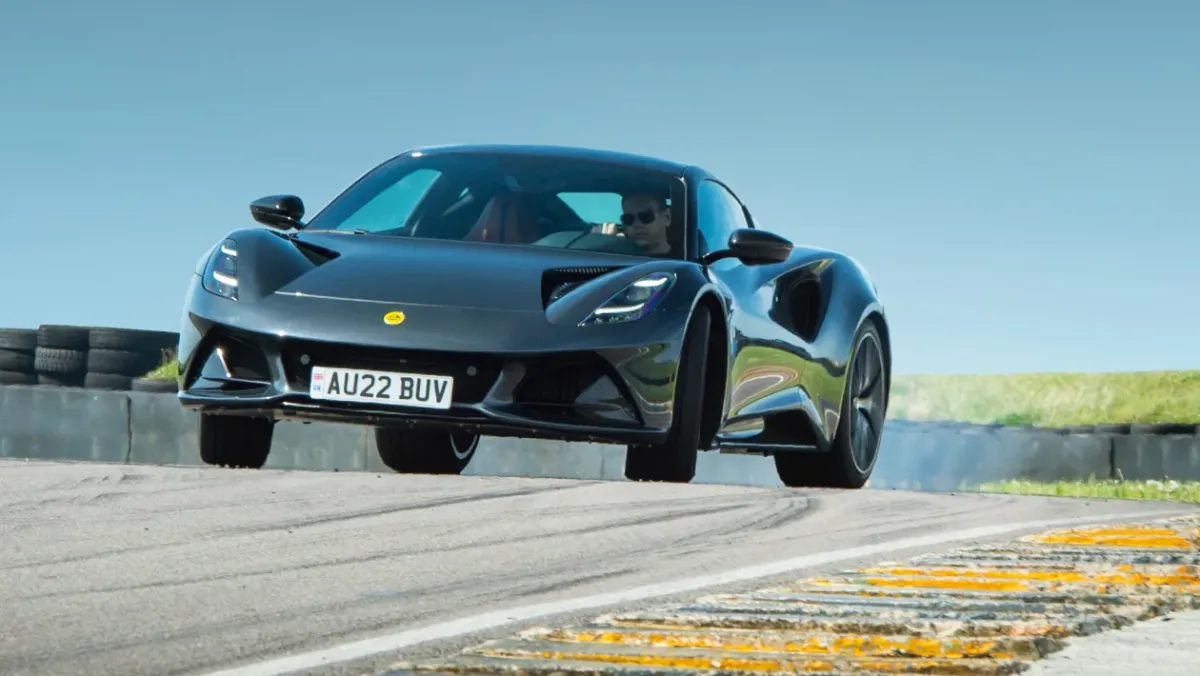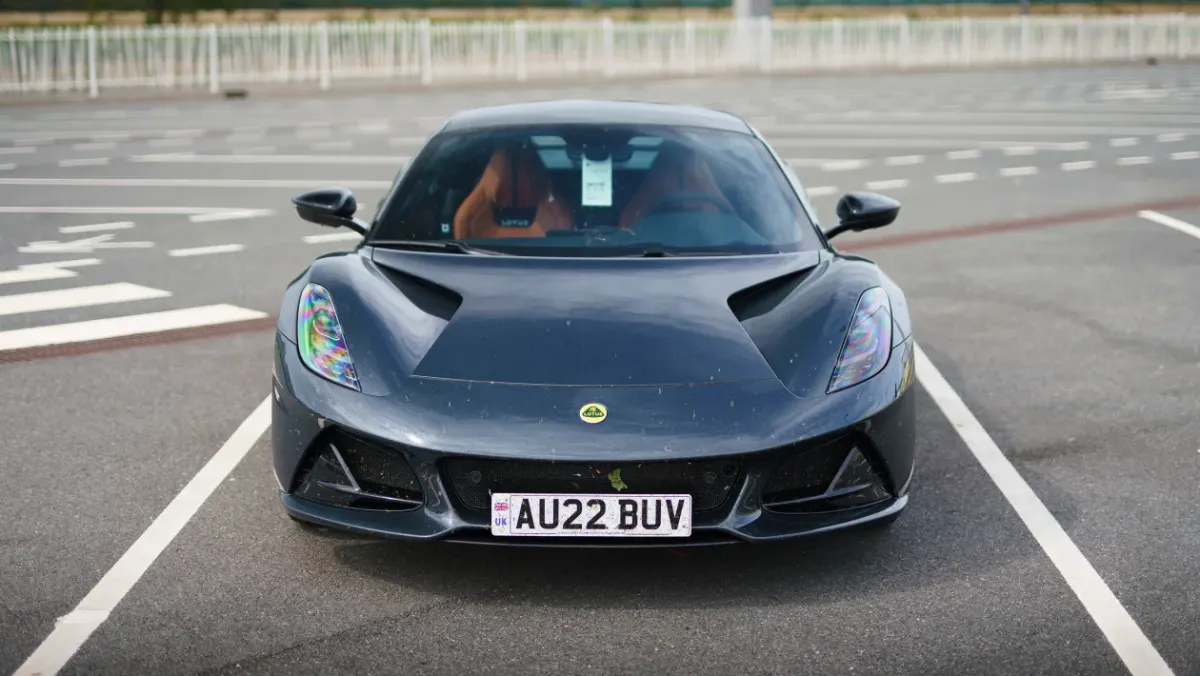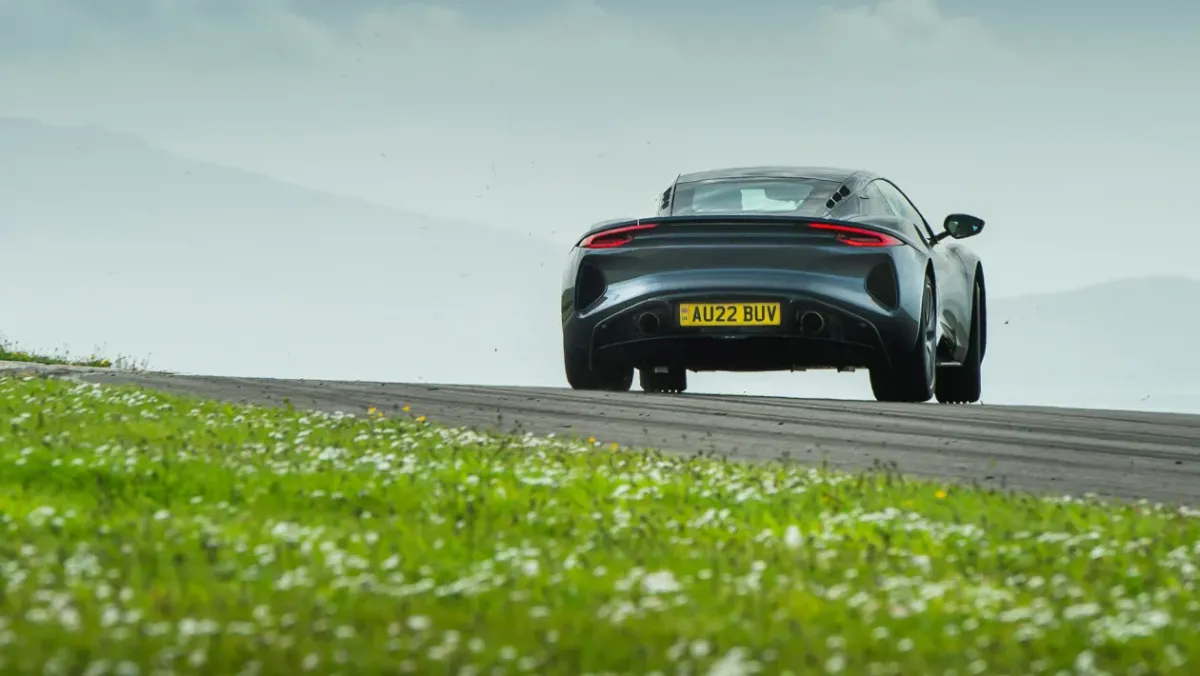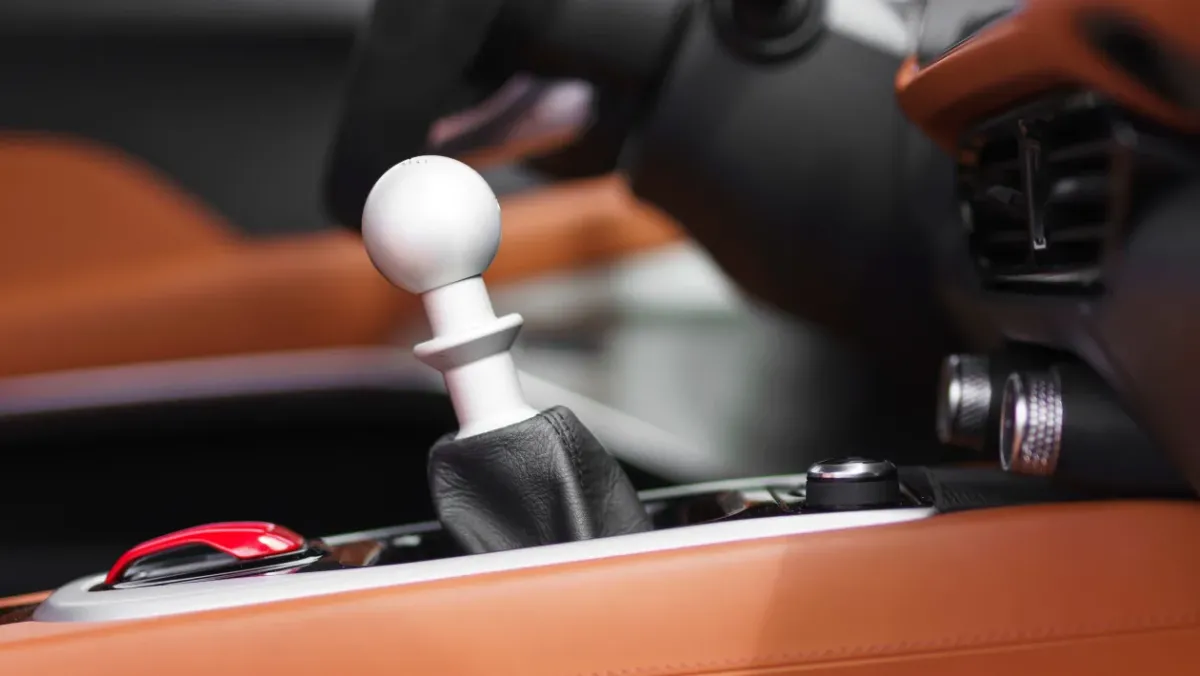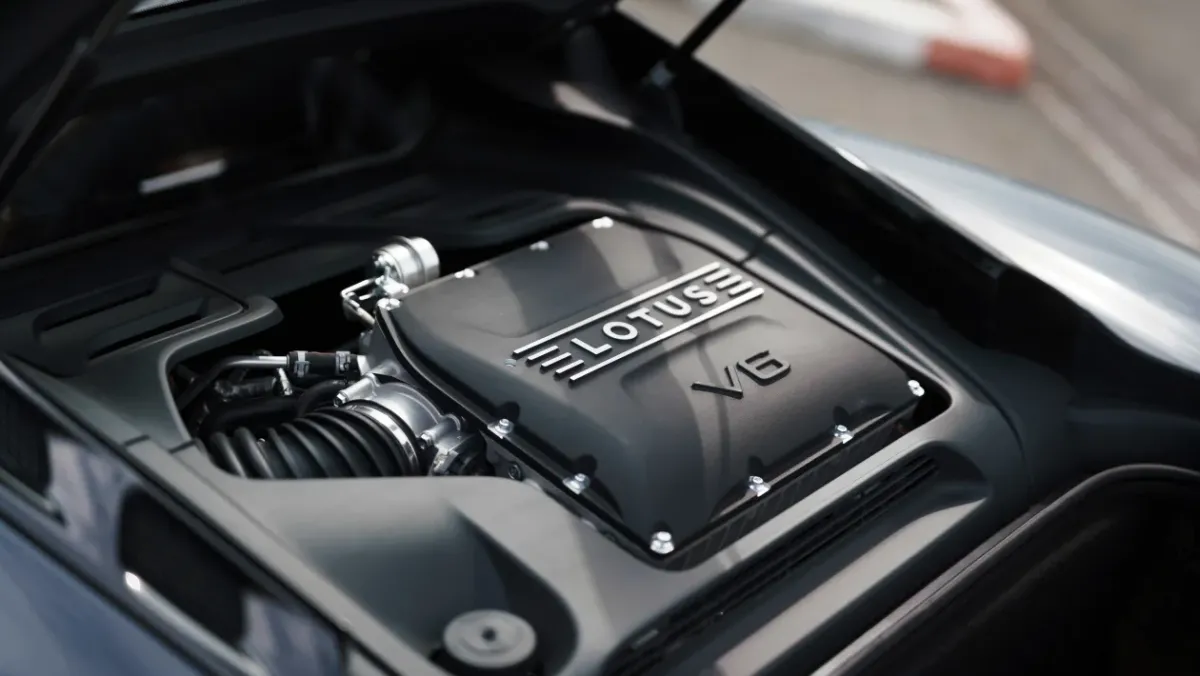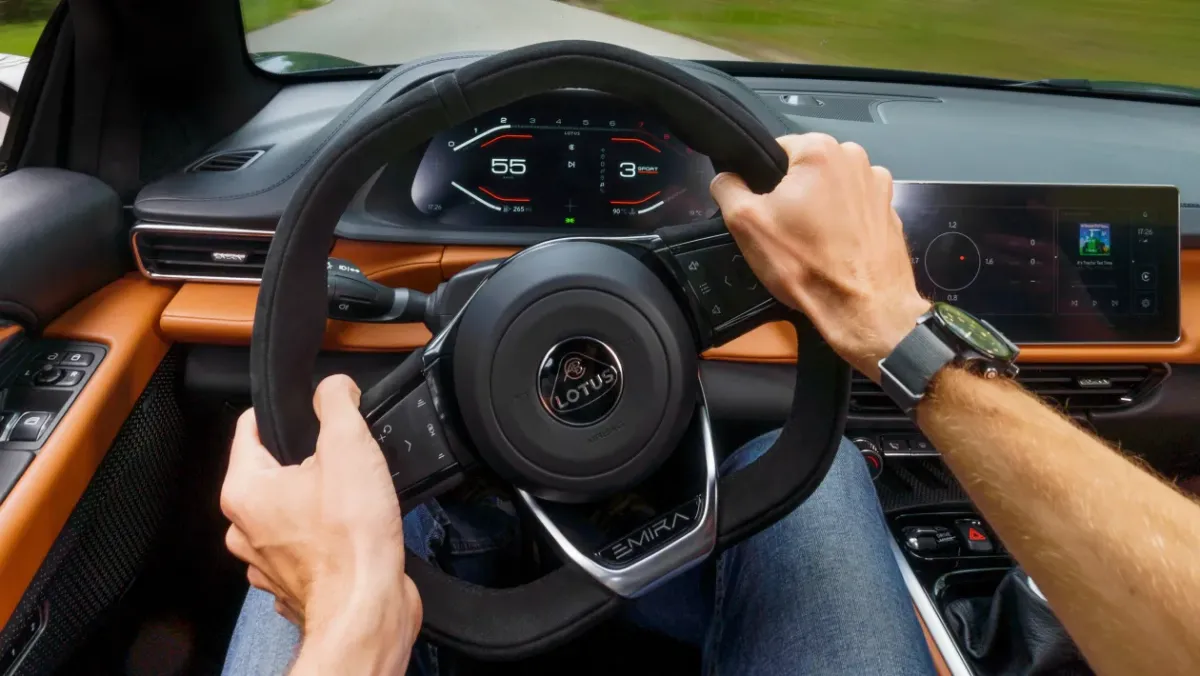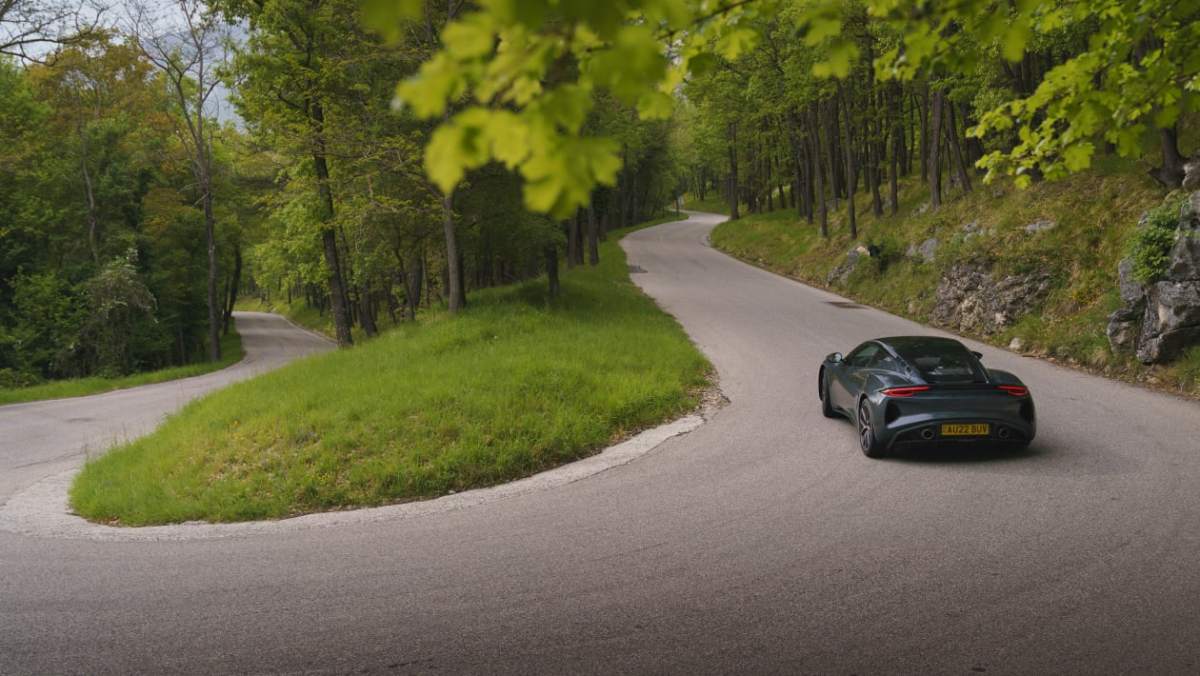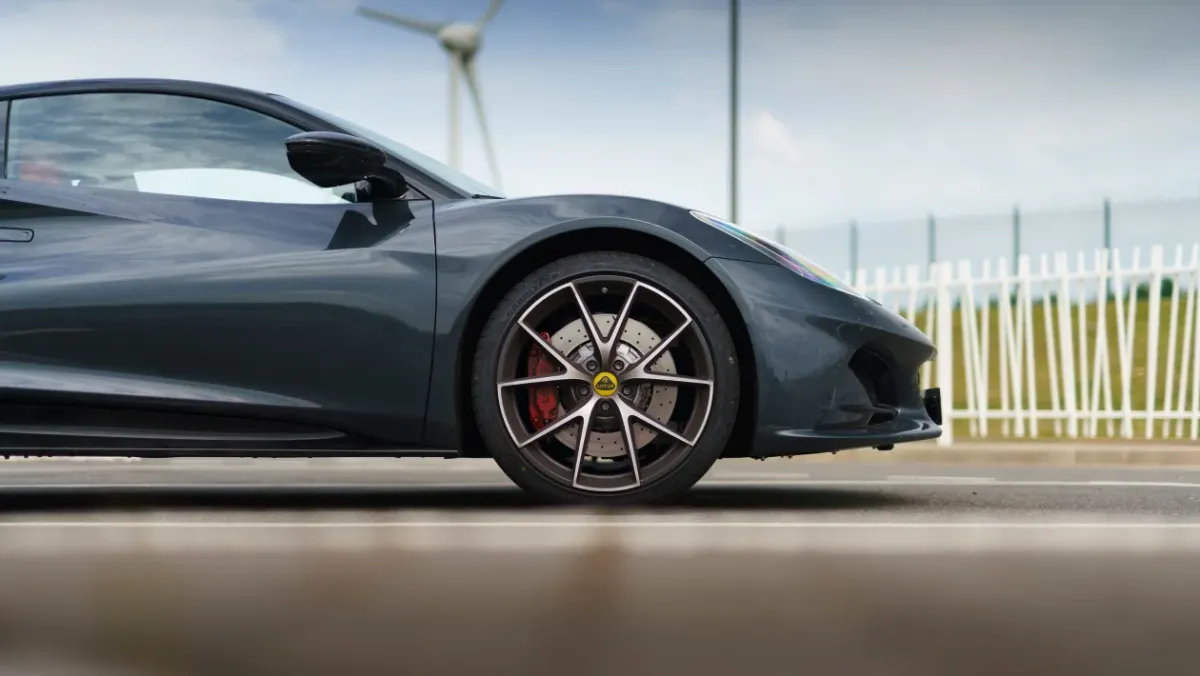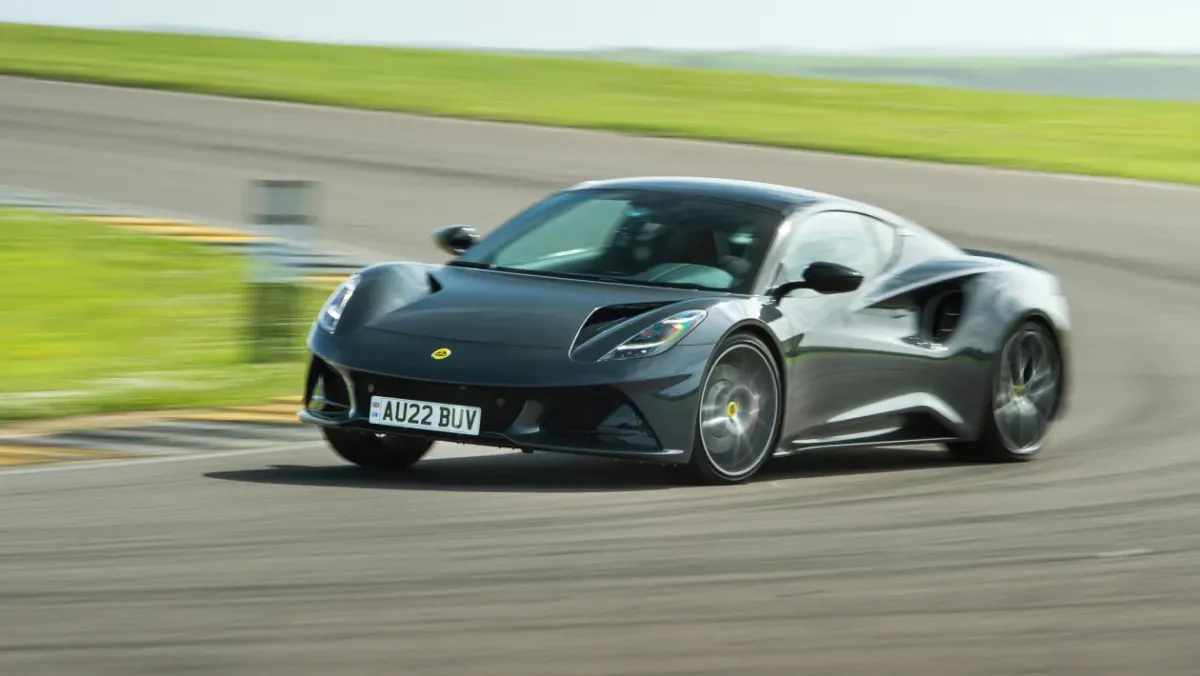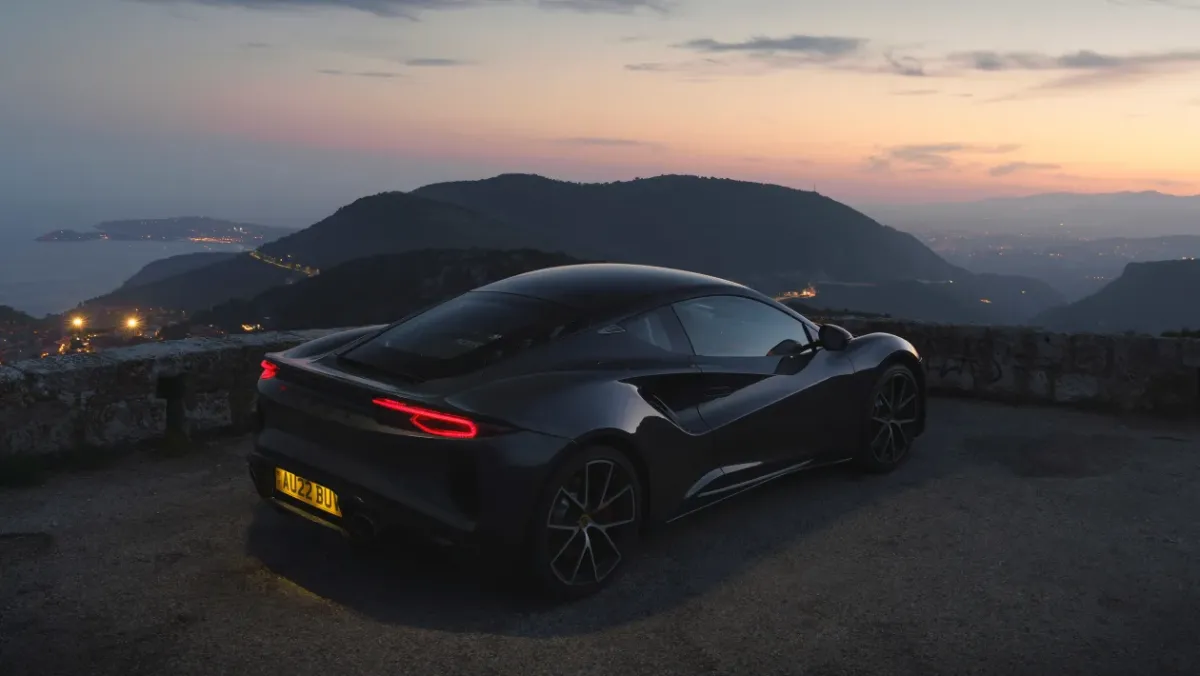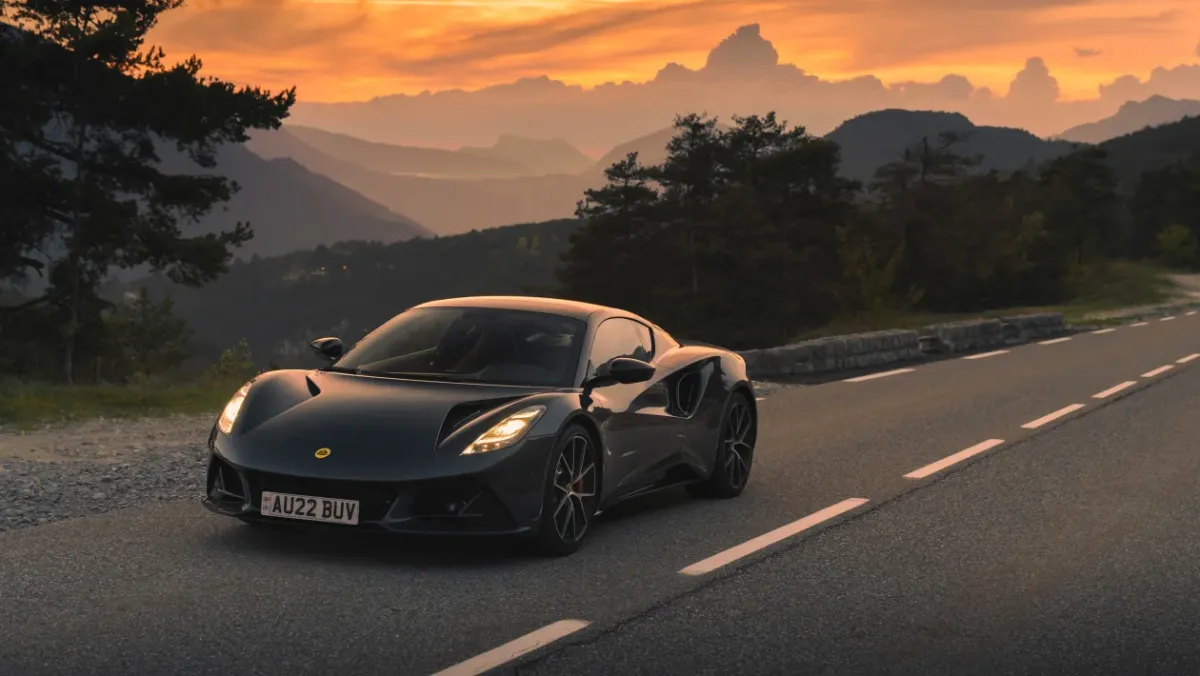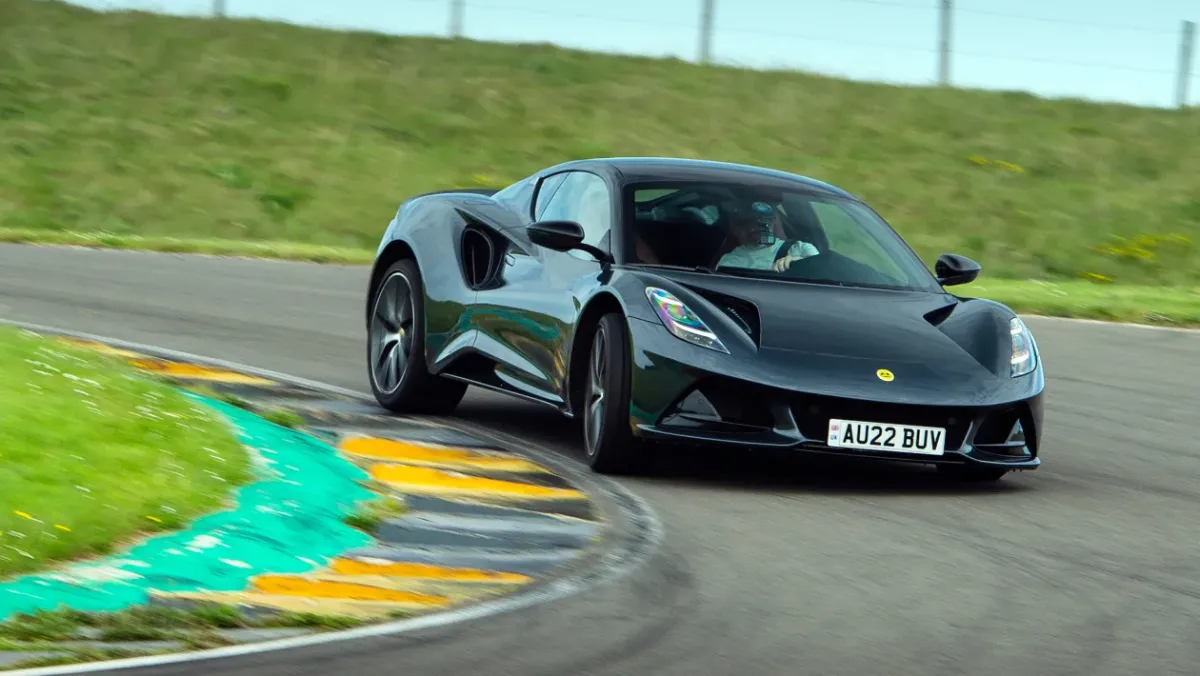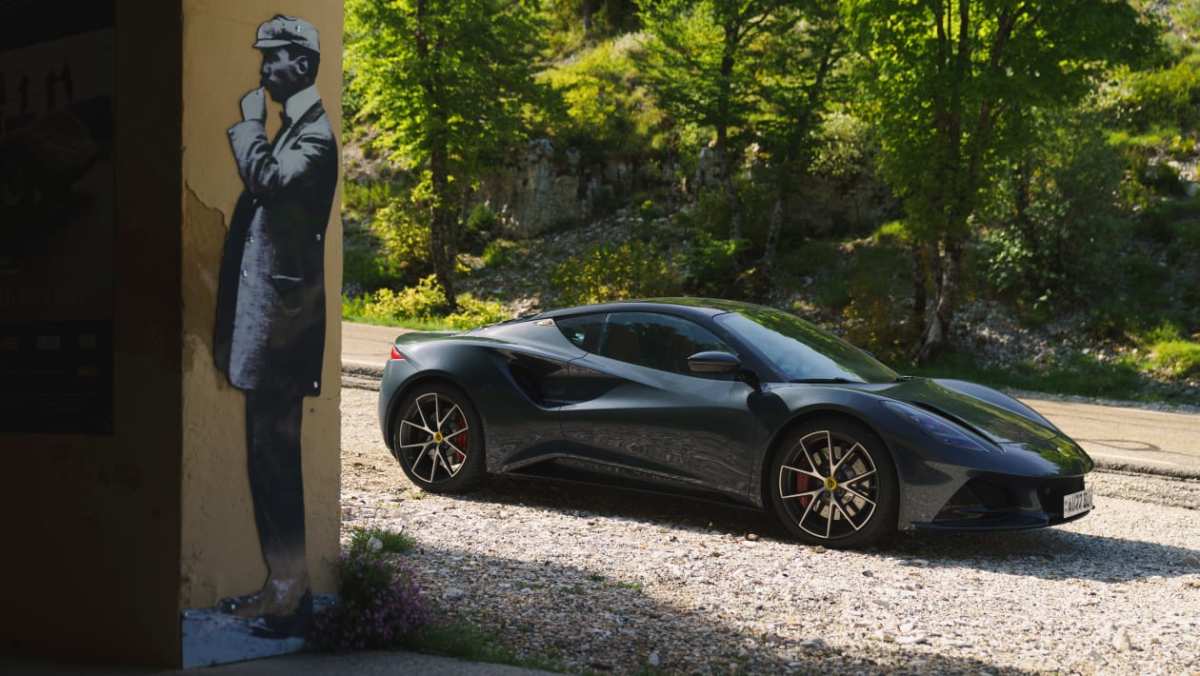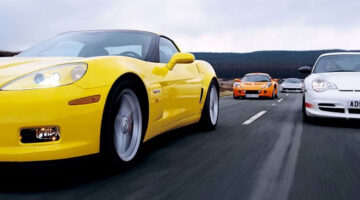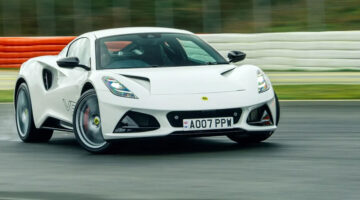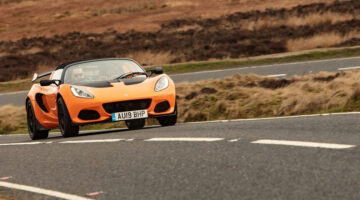The first new Lotus for a generation, and the last to be petrol powered, shows great promise but needs some polish
| Exterior design, interior ambiance, eight-tenths performance | |
| Feels there’s more potential waiting to be untapped |
Just how important is the new Emira to Lotus? For the now Geely controlled firm, it marks the beginning of a new era under new owners with a very clear focus on the direction the company needs to head, while signing off from the one it has navigated with mixed success for the last 70 plus years.
This is the first new Lotus for a decade, the first also conceived and paid for by Geely and the last to be offered with an internal combustion engine as Hethel plugs itself into an electrified future, which will start with the Eletra SUV and be followed by both a sports saloon and a sports car before the end of the decade.
In the here and now it’s all about the Emira, and what an achingly pretty car it is. Unmistakable a Lotus it also displays both hints of a junior Ferrari (stick a Dino badge on its nose and Maranello would answer that rumour) and a little league McLaren. In profile it’s low, lithe and hunkered down in the right places, and from the rear there’s a three-quarter supercar vibe going on in how the curves flow over the rear haunches and wrap around the rear of the car. Only the comparatively plain looking front hints at a car punching above its price point.
It’s no less impressive inside, either, and not only because changes to the extruded aluminium chassis have improved ingress and egress – that’s no longer a topic of conversation. Changes have also been made to the seat since we drove a validation prototype back in March, and this car, as with all the early press cars, is also one stage removed from final production quality, but it now supports you much better and sits you lower in the car, eradicating the sense of you hanging on rather than sitting in it.
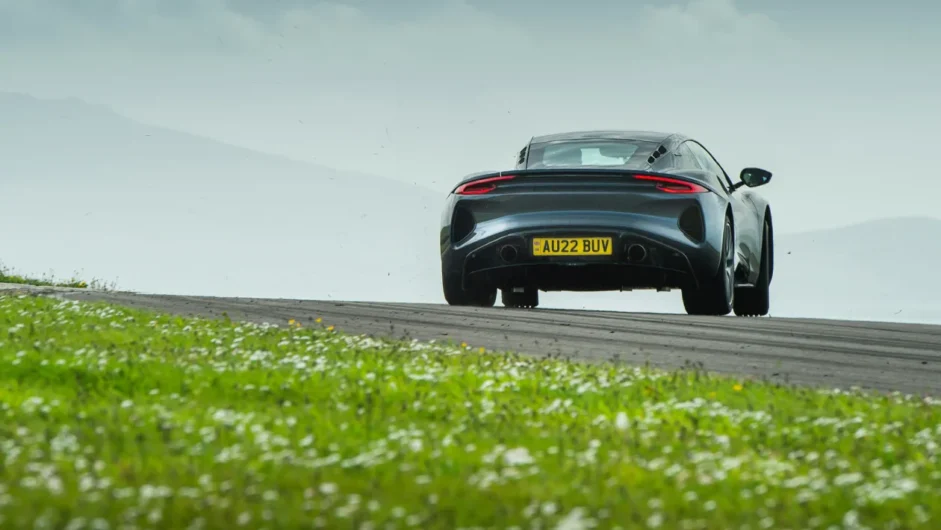
The not quite round, not quite square steering wheel looks a little odd but feels good to have in your hands, although some will find its rim a little thick to grasp. The TFT instruments are clear and well lit in all light conditions, but they lack the ability to be configured to show a traditional speedo and rev counter dial leaving you with bar-style rev counter and large numerical display for your speed. The 10.25-inch central touch screen is home to everything else bar the heater controls and toggle switch on the central transmission tunnel for the driving modes. It’s all instinctive and simple to use on the move and if you own a Volvo you’ll recognise the switchgear, which is no bad thing.
It’s unlikely Toyota Camry owners will notice the Emira’s 3.5-litre supercharged V6 engine as the same base unit in their dreary saloon, and with good reason, because it remains an engine stacked with character. It’s not the most sonorous to listen to, but it’s cultured where McLaren’s V8 is gruff, hard edged where Porsche’s flat-six is silky smooth.
It’s beginning to feel its age, though. Off the line the throttle pick-up isn’t as sharp as expected, some of which you can put down to the 1486kg kerb weight of our test car pegging it back. But as you step into the midrange the Edelbrock 1740 supercharger is up and running and the quick jog snaps to a furious sprint as the 394bhp Emira feels good for its 4.3-second 0-100kph time and 290kph maximum. Its performance surge tails off quicker than you might expect, the 6800rpm redline feeling a long way off, which means the six-speed manual is never far from being called into action, which is both a blessing and a hindrance.
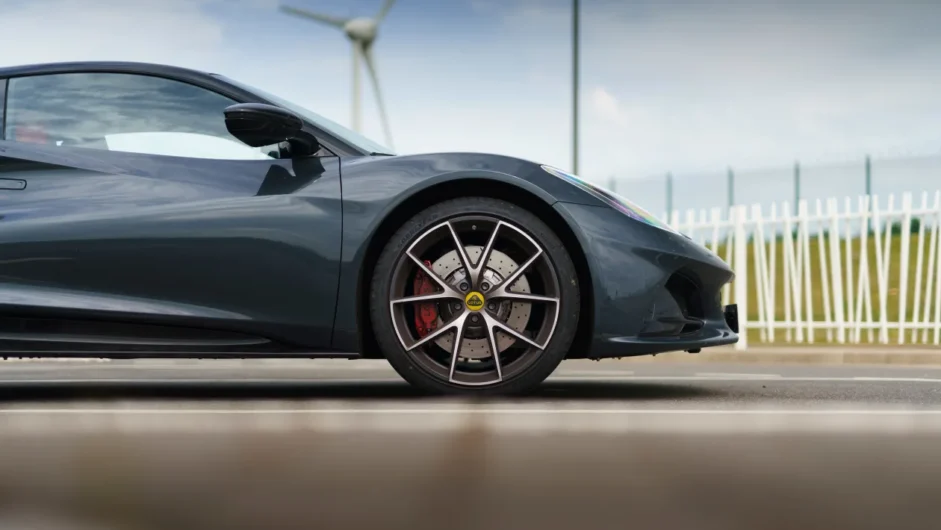
There’s a no-nonsense physicality and mechanical feel to the shift, each up and down change requiring a very positive action from your wrist, but more often than not even giving it 100 per cent of your attention can result in a botched shift, with second to third (and down again) the stickiest – all the across the gate upshifts aren’t as instinctive as the best out there. In the Evora this powertrain blends into the background as the rest of the car demands your attention, but the superb refinement and useability of the Emira only highlights that the V6 is past its best (the forthcoming 430 Cup model in 2024 will be its final swansong) and just perhaps the more energetic AMG sourced turbocharged four-cylinder with its double-clutch transmission will be the Emira’s powertrain sweetspot.
Three chassis options are available for the Emira, with the Dynamic Pack offering Tour or Sport settings, the latter featuring stiffer spring and damper rates and also available with a limited-slip differential. Both feature fixed rates for springs and dampers, with the switch in driver modes adjusting throttle and steering response only, the latter hydraulic but now power assisted. Our Sport chassis car – wearing the standard Goodyear F1 Eagle tyre rather than the Michelin Cup 2 tyres customers can specify – has a beautiful flow to its ride, rich in Lotus DNA in how it dissects the surface to feedback everything you need to know and nothing you don’t. There’s a sense of it floating across the surface but with none of the aloofness this would traditionally be accompanied by. It’s so much calmer than any Evora, the steering still detailed and weighted to near perfection that allows you to position it on the road with pinpoint precision.
It takes very few kilometers to dial yourself into the Emira and after a couple of hundred extra kilometers you don’t want to get out, it feels every inch the next generation sports car Lotus wants and needs it to be. Those traditional Lotus controls weights are all present and correct, providing an organic link to everything it does from how it steers, rides and stops all three combining to deliver a connected driving experience like few others. It pours itself into corners with a linear calmness, settles sweetly and leans on its rear axle, loading the diff and feeling every inch the complete sports car.
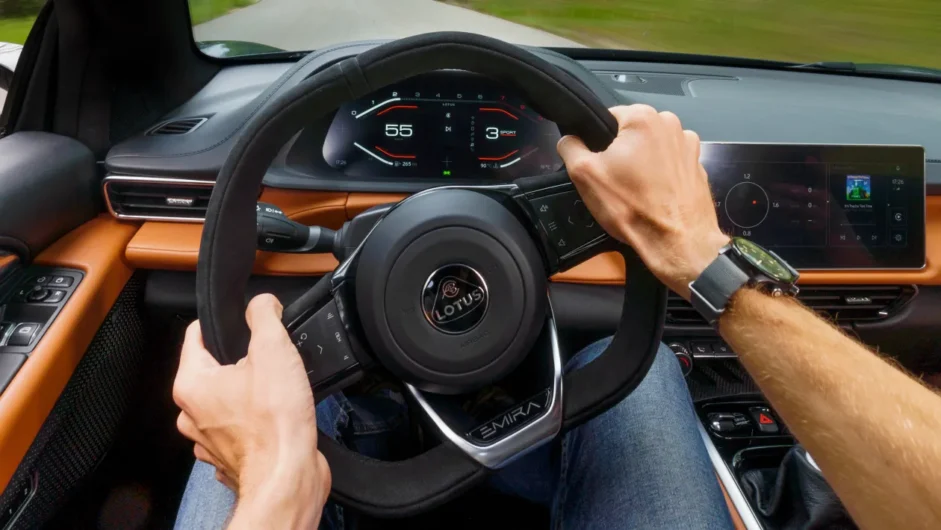
Yet when you start to lean on the Emira more, push it harder and ask more from it than everything you have enjoyed until now, at around eight-tenths of its ability it starts to peel away at the edges. Push harder and a Sport chassis that felt expertly tied down, blending control with pliancy begins to feel soft edged, the front tyres less keyed into the surface, the body control less resolute as the loads build, the high positioning of the V6 engine along with the 61 per cent of the kerbweight (more than a GT3) positioned across the rear axle more than making themselves felt. It takes the Emira from a car you trust implicitly to one that requires you to be on top of it every time you step up to its edge, not because there’s a feral nature that requires a strong hand, but a mask falls over the car that leaves you on your own. The delicacy, the precision and sense of connection not keeping up with your increased commitment and desire to push harder.
It’s less of an issue on the road, where the Emira punches above its weight and steps into the junior-GT league, a car you’d use for every journey from a station run to a continental charge with mates. But on track, where every Lotus is born, the Emira feels it needs a few more laps. It could be that the more focused Michelin Cup 2 tyre could provide the answer.
In creating a sports car that has more appeal and ability than any Lotus of the last generation it has also created a sports car that has erased some of the magic that made late 20th and early 21st Century Lotus’s such unique, thrilling and memorable sports cars. The Emira could still join them, it’s just on this early showing (Lotus has promised us a fully finished car to try with the correct tyres within the month) it feels there’s some final work to be done to turn the Emira from a good Lotus to another great one.
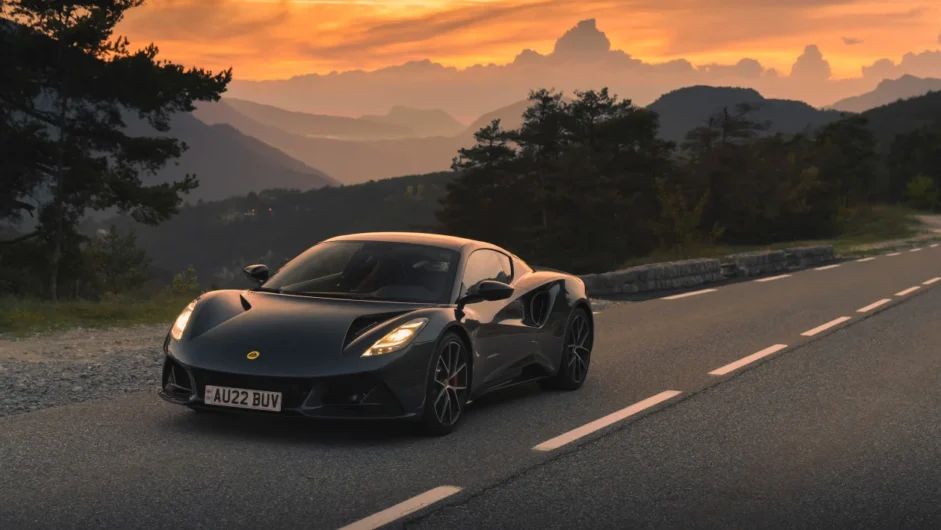
Price and rivals
How have they done it for the money? The AMG powered Emira will start from $68,975 and this First Edition V6 model commands a minimum of $87,370 and while neither sums are ones you would find down the back of a sofa, when compared to rivals it’s a bit of a head scratcher. That’s the benefit of being owned by someone who can negotiate on your behalf for key components.
Our test car with a few options came in at around $93,000, the same as Porsche’s Cayman GT4, but as you can’t buy one of these without doing questionable things with your Porsche dealer, the Cayman 4.0 GTS at $74,130 looks near impossible to ignore. It wouldn’t take long to beat the Emira’s price with some well chosen Porsche options, and on this showing it has a stronger powertrain and its chassis offers a far wider operating window. Is it as special as the Lotus? Certainly not to look at and for that sense of occasion, but to drive the Cayman remains one of the strongest.
If you’re willing to drop a couple of cylinders, Alpine’s A110 is equally tempting, with the A110 S putting its 1119kg kerb weight and 296bhp to excellent use. It’s not as premium as the Lotus, then again it cost $17,000 less, but its steering, chassis and dynamic poise could all be from a car made in Hethel. Funny that…
Away from the mid-engined rivals, now that Toyota has installed a six-speed manual gearbox to its $61,500 335bhp 3-litre Supra, the sports car category is heating up nicely.
This article originally appeared at evo.co.uk
Copyright © evo UK, Autovia Publishing

